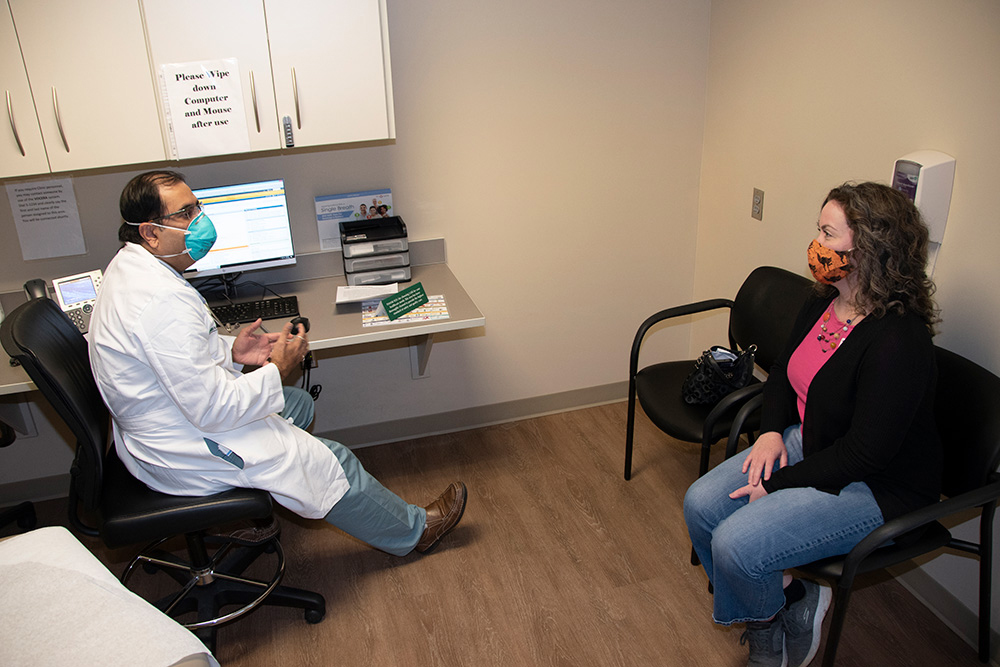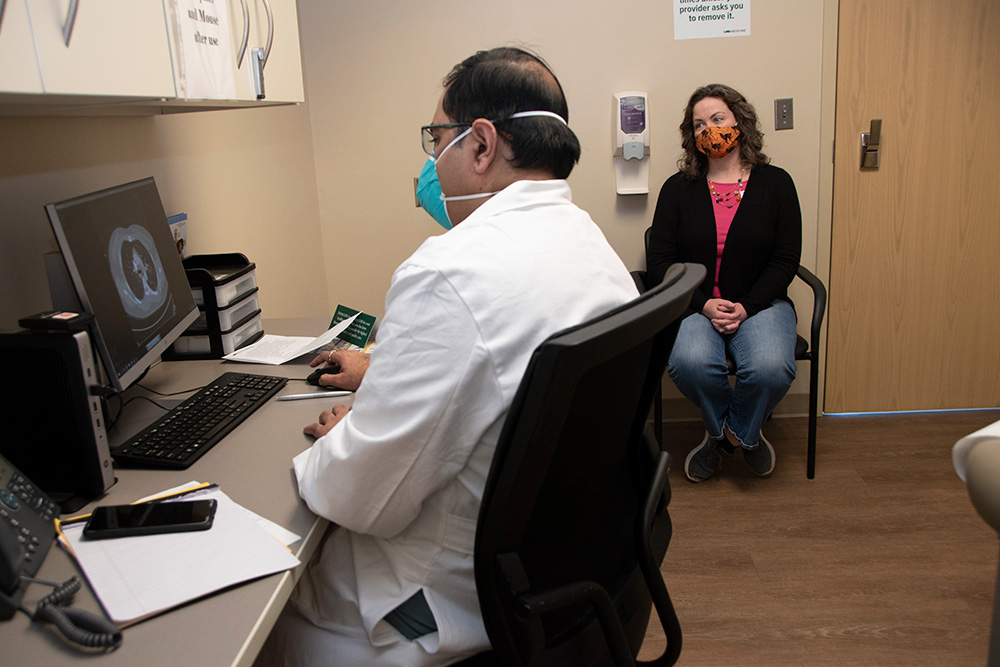While the complete ramifications of COVID-19 infection are not fully known, it is estimated that up to 30% of patients may experience persistent symptoms after initial recovery, even if their disease was mild. In some cases, patients who had no symptoms when first infected with the virus can develop post-COVID symptoms, or they may experience different symptoms than ones they had during the early phase of infection.
“Symptom-wise, the most common respiratory concerns we see are breathlessness after exertion and cough,” notes Dhaval Raval, M.D., Clinical Assistant Professor in the division. “Some of the common diagnoses we see are interstitial lung disease reactive airway disease, respiratory failure, and flare-ups from previous of underlying lung issues like asthma and COPD.”

The program accepts referrals for any patient needing further medical evaluation related to post-COVID symptoms experienced four weeks or more after first being infected with the virus. From the clinic’s inception in November 2020 through the end of February 2022, the full team has seen nearly 2,000 patients, with the UAB Division of Pulmonary, Allergy, and Critical Care Medicine managing roughly 65% of the total referrals.
“We have 3 half-day pulmonary post-COVID clinics per week on Tuesday, Wednesday and Friday afternoons. Along with me, we have two nurse practitioners and two other physicians who rotate in,” Raval explains. “UAB internal providers refer patients to us frequently. We also get referrals from both primary care doctors and other pulmonologists from outside UAB, including from other states like Mississippi and Florida.”
“Last November and December, we were planning to keep working with this specific program three times a week, then moving down to two times a week, then one time a week, then thinking we’d be done in March,” continues Raval. “One month later, we were having to deal with the Omicron variant. Now, we’re expecting to run this service through at least May or June, depending on whether any new variants emerge.”

“During our planning meeting end of last year, we planned to continue 3 half day clinics per week till end of March and then decrease it to twice a week for few months and then go down go once a week, hoping that demand for post COVID program will go down,” continues Raval. “One month later, we saw a big surge in post COVID patients as Omicron variant caused a spike throughout our country. Now we’re expecting to continue current structure through at least May or June, depending on whether any new variants emerge.”
For additional information on post-COVID medical treatment, affected parties can review a series of educational videos at www.uabmedicine.org/postcovid. Additional information on COVID-19 can be found at www.uabmedicine.org/covid.